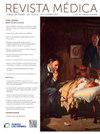智利天主教主教大学营养与饮食学系本科生学业成功的预测因素
IF 0.4
Q4 MEDICINE, GENERAL & INTERNAL
引用次数: 0
摘要
引言确定决定学业成功的因素有助于设计提高学业成功率的策略。我们的目的是找出与智利天主教大学(PUC)营养与饮食学专业本科生学业成功相关的预测因素。 研究方法:使用院校数据库进行回顾性研究。学业成功是主要结果,包括两个指标:i) 最终平均学分绩点 (GPA-f) 和;ii) 按时毕业,定义为毕业时间不超过 10 个学期。候选预测因素包括:年龄、性别、原籍地区、就读学校、大学选拔考试成绩(PSU-score)、录取途径以及对专业的偏好。逐步线性回归用于确定 GPA-f 的预测因素。二元逻辑回归用于确定与按时毕业相关的变量。结果PSU-分数是唯一能预测GPA的因素,能解释24%的变异。按时毕业的几率(OR [95%CI])受 PSU 分数(1.017 [1.003-1.031])和入学途径(PSU 1.00 [参考],Inclusive 0.30 [0.10-0.96],Special 0.46 [0.13-1.57])的影响。此外,通过公平录取入学的学生按时毕业的几率较低。由于教育不平等可能会影响学业成功,因此在教学过程中需要针对这些学生采取具体策略,以确保学业成功。本文章由计算机程序翻译,如有差异,请以英文原文为准。
Predictores del éxito académico en estudiantes de pregrado de la carrera de Nutrición y Dietética de la Pontificia Universidad Católica de Chile
Introduction
Identifying the factors that determine academic success can help design strategies focused on increasing academic success. We aimed to identify predictors associated with academic success in undergraduate students of the Nutrition and Dietetics Program of the Pontificia Universidad Católica de Chile (PUC).
Methods
Retrospective study using the institutional database. Academic success was the main outcome, including two indexes: i) final grade point average (GPA-f) and; ii) timely graduation, defined as graduating in ≤10 semesters. Candidate predictors were: age, sex, region of origin, school attended, score at the university selection test (PSU-score), admission route, and preference for the program. Stepwise linear regression was used to identify predictors of GPA-f. Binary logistic regression was used to identify variables associated with timely graduation.
Results
PSU-score was the only predictor of GPA, explaining 24% of its variance. The odds (OR [95%CI]) for a timely graduation were influenced by PSU-score (1.017 [1.003–1.031]) and admission route (PSU 1.00 [Reference], Inclusive 0.30 [0.10–0.96], Special 0.46 [0.13–1.57]).
Conclusions and implications
PSU-score partially predicts the academic success of Nutrition and Dietetics students. In addition, students who accessed the program by the equity admission had lower odds of a timely graduation. As educational inequalities may affect academic success, the teaching and learning process needs to be addressed with specific strategies for these students to ensure academic success.
求助全文
通过发布文献求助,成功后即可免费获取论文全文。
去求助
来源期刊

Revista Medica Clinica Las Condes
MEDICINE, GENERAL & INTERNAL-
CiteScore
0.80
自引率
0.00%
发文量
65
审稿时长
81 days
 求助内容:
求助内容: 应助结果提醒方式:
应助结果提醒方式:


